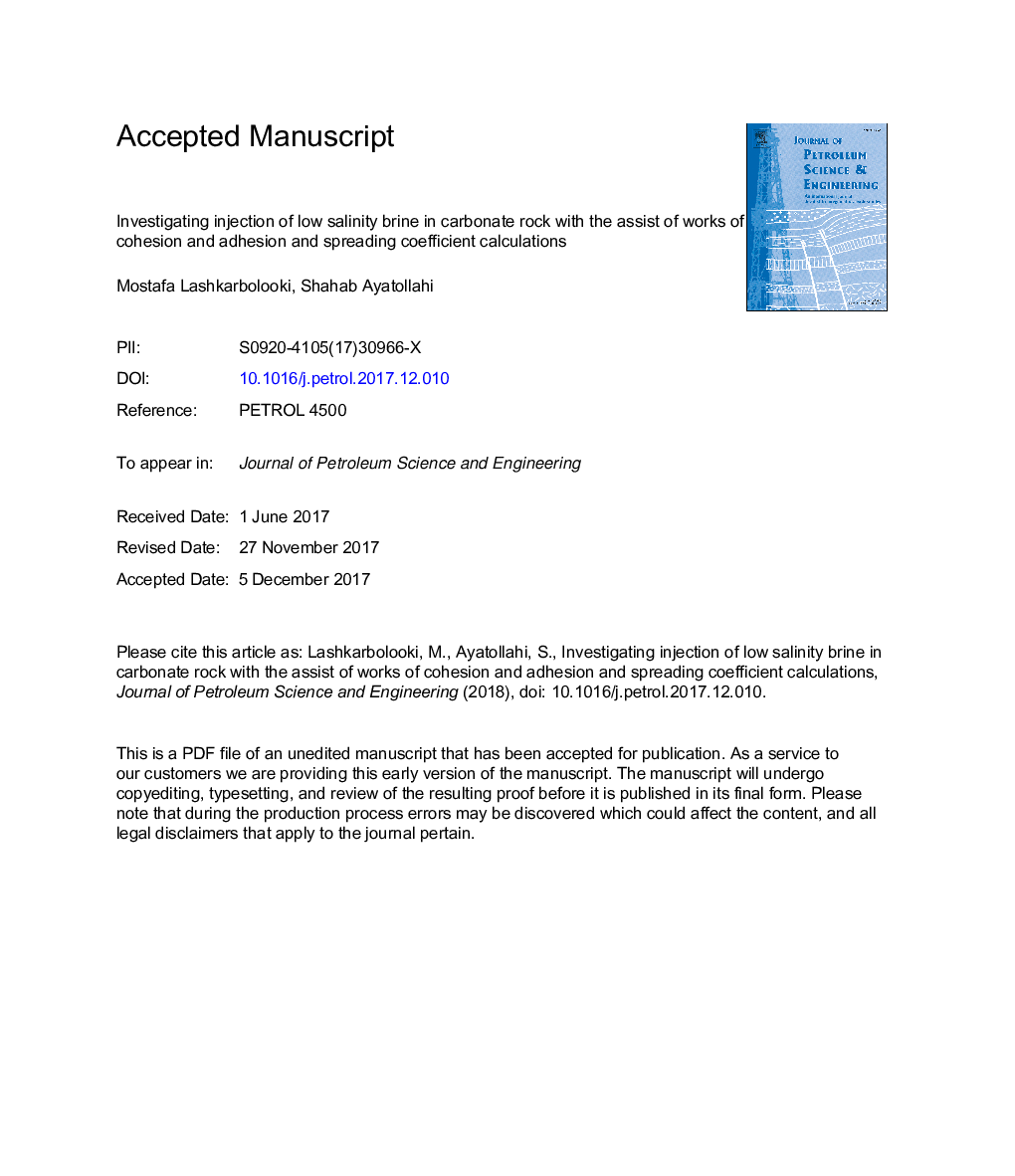| Article ID | Journal | Published Year | Pages | File Type |
|---|---|---|---|---|
| 8125469 | Journal of Petroleum Science and Engineering | 2018 | 36 Pages |
Abstract
Low salinity (LS) and smart water (SW) flooding processes which receive a great interest as cost-effective and environmental friendly techniques are relatively new enhanced oil recovery methods. Although shifting carbonate surfaces towards a water-wet state is the main mechanism behind these methods, effects of controlling factors (for instance: ion type or salinity) are already remained unsettled. In this regard, the effects of sulfate ion types (i.e. Na2SO4, MgSO4 and CaSO4) and their concentrations (i.e. 0-45,000Â ppm) on wettability alteration are investigated using contact angle (CA) measurement technique. In addition, work of cohesion, work of adhesion and spreading coefficient of all examined salts are calculated based on the experimental interfacial tension (IFT) and CA measurements. The results reveal that reduction of salinity of the aqueous solution and presence of sulfate anion at high salinity conditions (15,000-45000Â ppm) are two important parameters for wettability alteration.
Related Topics
Physical Sciences and Engineering
Earth and Planetary Sciences
Economic Geology
Authors
Mostafa Lashkarbolooki, Shahab Ayatollahi,
